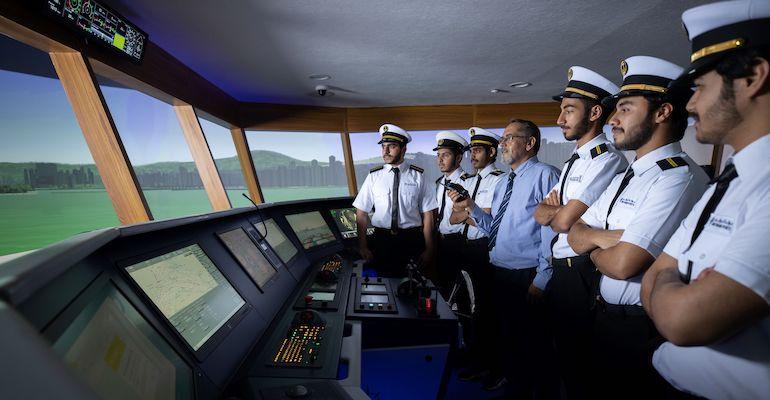While some believe the industry faces an acute shortage of seafarers, others say this is simply not true and not borne out by the situation on the ground, while some point to a mismatch in supply and demand, and a failure by the shipowners to provide cadet berths.
Setting the scene in the opening sessions of the conference Guy Platten, Secretary-General of the International Chamber of Shipping (ICS) detailed the expected shortage of officers.
“According to the latest ICS/Bimco study, 96,000 seafarers short by 2026. That's a huge challenge. That's certified officers we're going to be short of, so that's something that we need to embrace,” Platten said.
The move to alternative low and zero carbon fuels will complicate things yet further with research commissioned by the Just Maritime Transition Coalition showing that up 800,000 seafarers will require additional training by the mid-2030’s so as to be able to use alternative fuels safely.
The extreme lack of diversity in the seafaring workforce of which just 2% is female was highlighted as an issue that needed to be addressed. “Diversity is on the agenda and is going to be a very hot topic,” stated Andreas Nordseth, Director General of the Danish Maritime Authority told the conference. “We have to find out what to do. It’s not just to do with fairness of gender.”
Nordseth said that have a more diverse is better for safety, retention and a wide range of factors.
Platten was in agreement saying, “It’s a disgrace really that only 2% of our workforce is women. And we're just missing out so much talent and with the digitalisation with technologies, with all that's happening, we've got a golden opportunity to change that.”
The crew supply forum later on in the first day of the conference grappled further with the issue of the shortage of officers.
The lack of cadet berths was highlighted as an issue along with the longstanding huge mismatch between the numbers of graduates from Philippines maritime schools and academies and the actual number that ever work on board a ship. Philippines maritime schools churn out around 25,000 – 30,000 graduates annually yet only around an estimated 5,000 of those will ever serve on board a merchant vessel.
It was an issue pressed by conference chairman John Adams, Senior Advisor to V.Group, and whether it related anyway to the quality of the training and issues such as STCW compliance.
Iris Baguilat, President of Dohle Seafront Crewing, questioned the lack of cadet berths and the long-term commitment of shipowners to Filipino seafarers. As to why so few Filipino graduates managed to get jobs at sea she said, “It’s a question you have to ask the shipowners, why are they not hiring our graduates.”
Marlon Rono, President and CEO, of Magsaysay People Resources Corp, said, “That really is a big issue, and one is because not so many shipowners take cadets.” Rono highlighted the policy of Japanese shipowners that two cadets have to be taken on every ship, and if cadets are not taken there is penalty levied to a fund for training. The result is it is better to take cadets than not.
Speaking from the audience Kuba Szymanski, Secretary General of Intermanager, said he did not believe there was a shortage of crew noting that in a capitalistic world if there is a shortage of something the price goes up. “Do you see salaries going up now except LNG? I’m sorry, no, and if there are its only 1 – 2%,” he said.
“If you want seafarers, my email address is available send us a message my members will be delighted to provide you with British, Romanian, Polish Ukrainian, Filipino seafarers, there's plenty of them. So, there is no shortage.”

